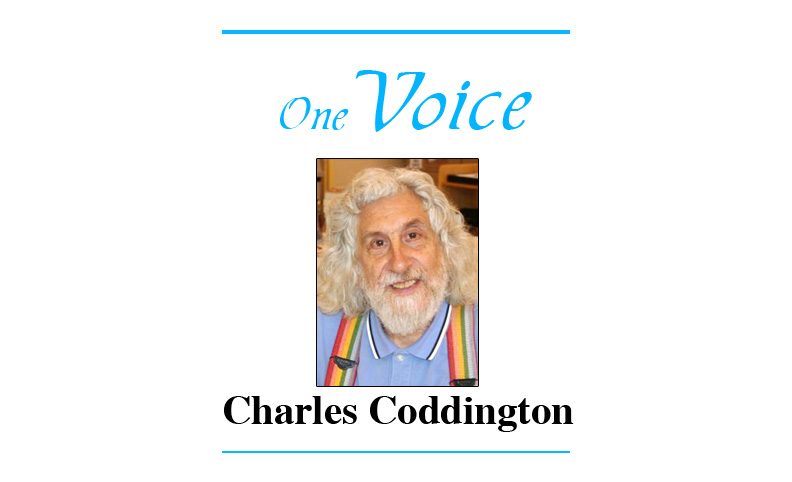
Reprinted from November 3, 2011
Rite awf, thuh disserneen reeder will notis sumthing rather diferent abowt this esay. Hee or shee may naht eeven beeleev hee or shee iz reedeen whut haz bin printed ahn thuh paje. Hee or shee mite cunclood that sumwun iz playeen uh joke ahn him or her.
It iz no joke, deer reeder. It iz kwite reel.
I decided too conduct uh litel ekspairuhment I hav bin thikeen abowt for sum time. Yes, I hav riten theez ferst fyoo pairuhgrafs foneticully, thuh way English werdz sumtimez uhpeer in foren dikshunaireez.
One of the common complaints by non-English-speaking individuals who learn the language is the difficulty of pronunciation. And they are right. It’s sometimes difficult for native-born Americans who are beginning readers, because modern English is the only non-phonetic tongue on Earth. Once upon a time, it was phonetic; when it was strictly Anglo-Saxon, a dialect of German. The language had clear-cut rules for pronunciation. Try reading Beowulf in its original form, and you’ll see what I mean.
After the Norman invasion of England in 1066, the “muvver tongue” began its long journey toward being the polyglot language it now is. It borrowed, sometimes heavily, from many other languages, such as Latin, Greek, French, Italian, Spanish, Arabic, to name a few, and it is still borrowing even as I pen these words. Along the way, English became less and less phonetic and lost its clear-cut rules of pronunciation. Foreign students of English ever since have started out pronouncing the words phonetically, but eventually have come to realize that each English word has its own pronunciation and that no two words, even though they may be roughly spelled similarly, are pronounced similarly. That many non-English-speakers succeed in overcoming this barrier speaks volumes about their persistence.
One of the peskiest problems of our language is its many homophones. For those readers who may have forgotten their basic grammar, a homophone is a word which sounds like another word but is spelled differently and has a very different meaning. “Bare/bear,” “meet/meat”, and “read/reed” come easily to mind. Only in the context of the passage can one determine which word is meant. On the other hand, homophones lend themselves marvelously to the creation of puns and plays on words, a unique form of humor for which English is famous, and it requires a complete mastery of the language.
Another sticking point is the collection of words containing the “ough” combination. It is enough to cause anyone to throw his/her hands into the air and go get drunk! In most cases, the “gh” is silent; in others, it is pronounced as an “f.” An interesting example is the word “tough” (pronounced “tuhf”). Insert an “h” after the “t,” and you have “though” (pronounced “tho”); insert an “r” after the “h,” and you have “through” (pronounced “throo”). Go back to “though” and add a “t” at the end, and it becomes “thought” (pronounced “thawt”). Talk about a lack of rules!
What would happen if we were to write English phonetically, as I did at the beginning of this essay? For one thing, we’d lose a few letters in our alphabet. There’d be no need for “x,” because it could be replaced by “ks.” Similarly, “j” could be replaced by “dzh” (which, co-incidentally, is the way the sound is transcribed in Russian). “C” would go as well, because it has either a “k” or an “s” sound, depending on the word; its only other use, the “ch” combination, can be written as “tsh.” On the other hand, why use three characters when only one will do? Score a plus for the English alphabet!
For another thing, everything written/printed would appear as if a child had written/printed it. That’s because a child does write phonetically when (s)he is first tackling the language. Eventually, the young learn all of the oddities of English and write like adults. If, however, we were to teach them not to lose their sense of phoneticization, everything written/printed would become ingrained in the human mind and look like the opening paragraphs of this essay. I recommend reading the essay at the end of Orwell’s 1984 for a possible direction of English. Oh, there would be the hold-outs, the traditionalists, of course, but, after a few generations, the new English would become the norm.
The question now to be raised is, should we do that?
The essence of a language is to convey the maximum amount of information in as little a package as is intelligently possible. The characters of our, or anyone’s, alphabet have evolved from simple pictographs to modern forms to do just that; each of them had, and has, a specific function to perform. The magic of the English language derives from its ability to assimilate and to expand upon other languages, to become the world’s first truly polyglot tongue. Of course, the rules of pronunciation, such as they are, are difficult and often maddening, but the language as a whole packs so much punch that it is now the language of choice around the world and may continue to be so for the foreseeable future.
Wood yoo wahnt it enee uhther way?
Dzhuhst uh thawt.

